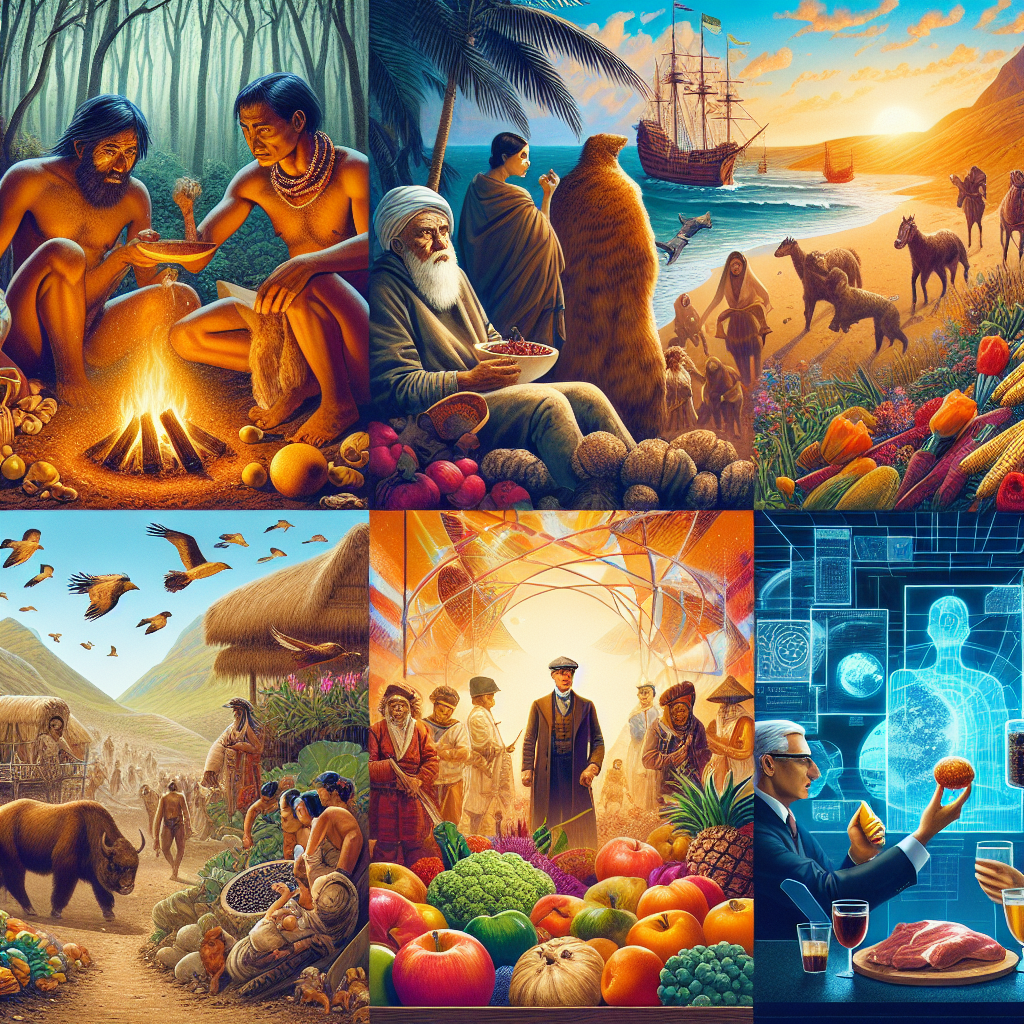The Incredible Journey of Food: From Foraging to the Future of Dining

Food is not just sustenance; it's a rich tapestry interwoven with history, culture, and innovation. As we indulge in various cuisines today, it’s easy to overlook the fascinating journey that our meals have taken—from the early days of hunting and gathering to the cosmic exploration of alternative proteins on our plates. This article unravels this history, illustrating the essential role food plays in human evolution and society.
The Prehistoric Palette: Foraging and Fire
Our journey begins thousands of years ago when early humans roamed the earth, subsisting on what they could gather or hunt. These foraging practices not only ensured survival but also sparked the development of social structures and trade systems. Archaeological evidence shows that prehistoric communities relied on a diverse diet, which included fruits, nuts, and game, leading to better health and longevity.
The discovery of fire transformed the way food was prepared. Cooking not only made food safer and easier to digest but also enhanced its flavors, marking one of humanity’s most significant culinary milestones. This shift set the groundwork for more complex food preparation techniques and eventually the creation of the first communal meals.
A Taste of Civilization: Agriculture Revolution
The Agricultural Revolution, which began around 10,000 BC, marked a pivotal transition from nomadic lifestyles to settled farming communities. This monumental change allowed humans to cultivate crops and domesticate animals, leading to surplus food production. The resulting food security fostered population growth and the rise of civilizations.
Different regions developed unique agricultural practices based on their environmental conditions, giving birth to diverse cuisines. For instance, rice became central to Asian cultures, while wheat dominated in Europe. These foundational agricultural practices laid the groundwork for trade networks and cultural exchanges, creating a dynamic global food landscape.
The Spice Routes: Culinary Crossroads and Global Exchange
The Middle Ages introduced the world to spices—aromatic treasures that transformed the culinary world and spurred global exploration. Nations competed for control over spice trade routes, driving expeditions that connected distant continents. This era was not just about flavor; it was a significant chapter in the history of food that reflected the desire for wealth and power.
Cuisines began to blend as traders and explorers returned home with exotic ingredients. Dishes like curry, paella, and gumbo arose as a result of these cultural fusions, highlighting how food can serve as a bridge between disparate cultures.
Modern Era: Industrialization and Globalization of Food
The 18th and 19th centuries brought about the Industrial Revolution, radically changing food production. Mechanization and advancements in preservation techniques expanded food distribution, turning local specialties into global commodities. The invention of canned food, refrigeration, and vacuum packing revolutionized how we think about and consume food.
However, this era also raised concerns over food quality, leading to a significant movement towards organic farming and sustainability in recent decades. Today, consumers are more aware than ever of their food sources, prompting a shift back towards local, organic, and responsibly sourced foods.
Future Feasts: Innovation on the Horizon
The future of food is now being shaped by technology and innovation. From lab-grown meats to vertical farming and synthetic foods, advancements in science are redefining our culinary experiences. With a growing global population and climate challenges, sustainable food practices are not just an option—they’re a necessity.
As we look ahead, it’s critical to embrace the idea that our relationship with food will continue evolving. We will inevitably witness a fusion of tradition and innovation that respects our heritage while addressing contemporary issues.
Conclusion: More Than Just a Meal
The history of food is a reflection of human advancement, cultural exchange, and societal changes. From foraging in prehistoric times to the high-tech foods of tomorrow, our culinary journey is incredibly rich and continually evolving. As we savor each meal, we should recognize the heritage behind it and consider how our choices can shape the future of food for generations to come.